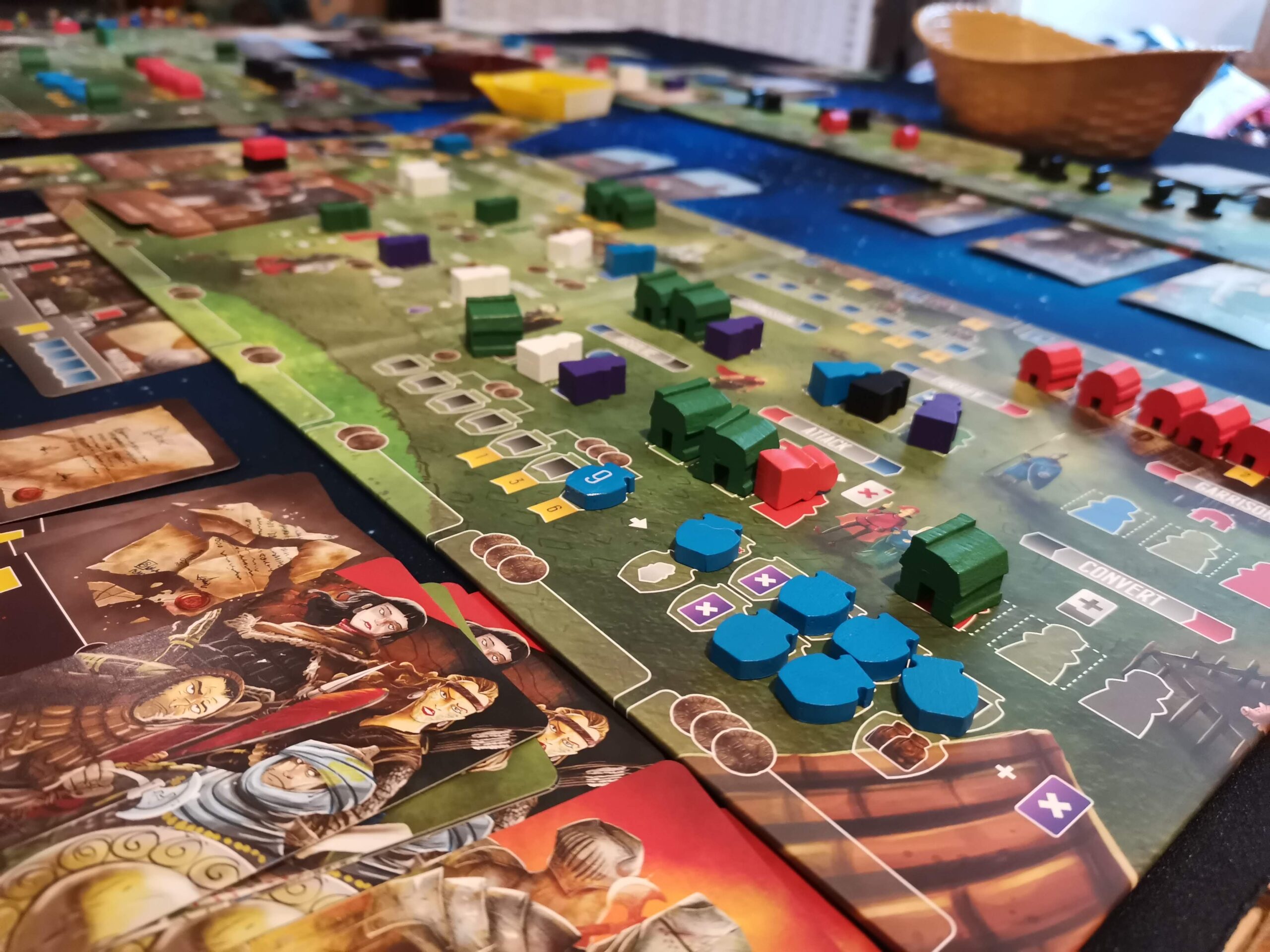Shem Phillips and Garphill Games have been churning out good games for years. As well as his trilogy of North Sea games, he’s been working away at the West Kingdom series. 2018’s Architects of the West Kingdom has been followed by Paladins of the West Kingdom, a slightly heavier worker placement Euro.
Taking place in the same region of West Francia from the first game, players aim to build their village stronger than the other players by recruiting townsfolk, repelling invaders, and barricading the walls. All the while helped by their loyal group of Paladins.
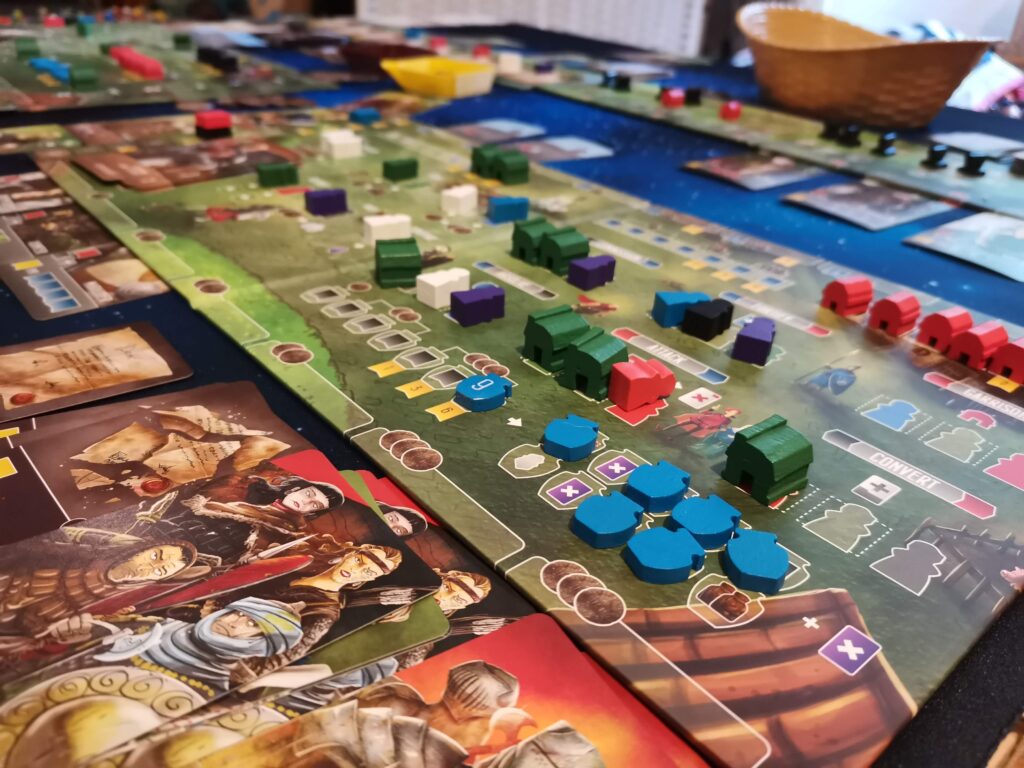
What’s In The Box?
The first thing to mention is this game comes in a small box. Garphill games tend to come in the smaller, square boxes, and when you see how much table space they take up, your initial thought is “how did they get it all in there?”. Have a look at the image to the right to see what I mean. It’s really like getting two games for the price of one; the game itself and then an abstract game of getting it in the box and closing the lid. Okay, that’s exaggerating a little, but it is a squeeze.
There are loads of bits in the box. Workers in five colours, red buildings, green buildings, black commissioning tokens, blue vases, silver tokens, provisions, six decks of small cards, three full-size decks, four folded player boards and two folded main boards. Phew. Production quality is very high, the player boards fold both ways and have an AI/automa side as well as a player side.
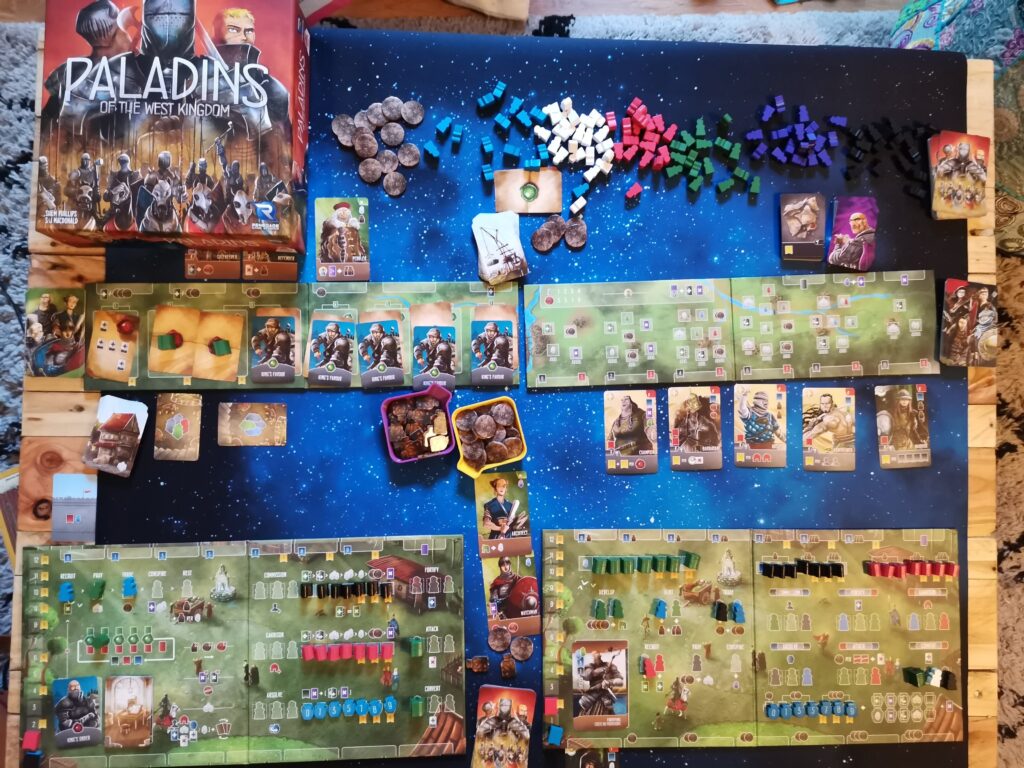
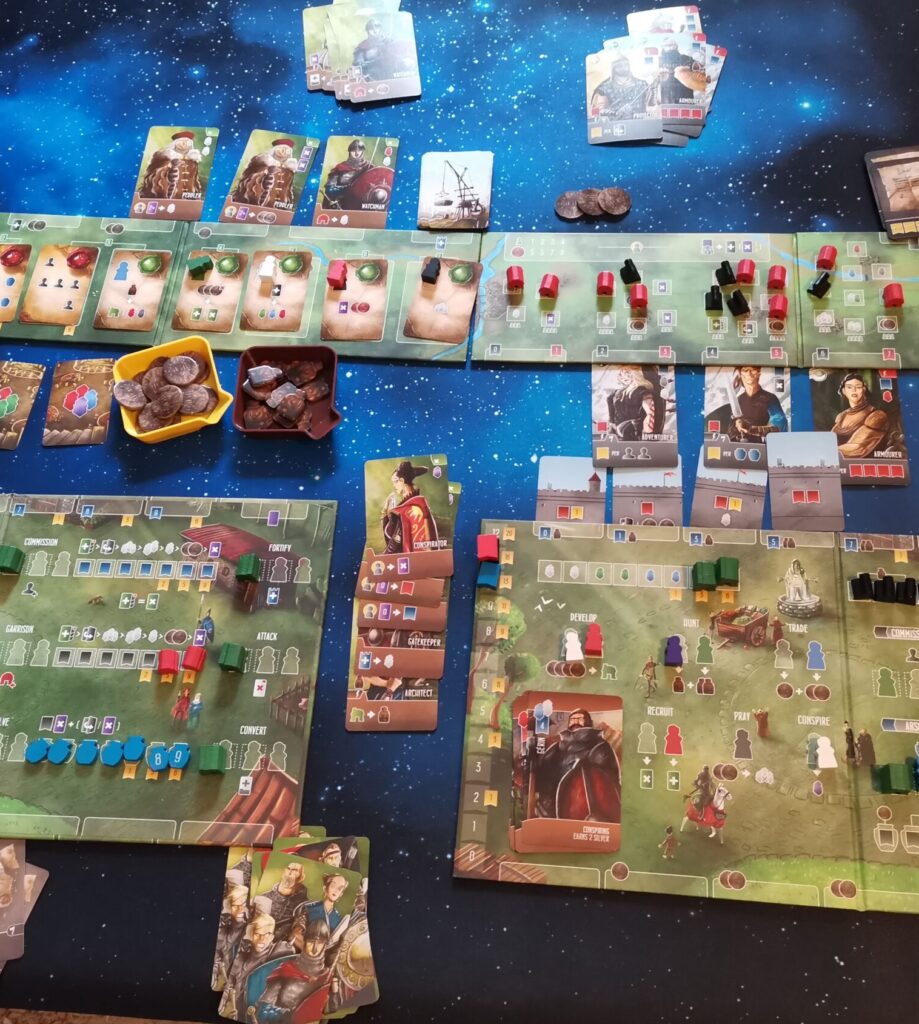
How Does It Play?
Paladins of the West Kingdom is a pretty heavy game, there’s no escaping that. There’s a lot going on at any one time, and a lot of decisions to make. Each player gets a number of different coloured workers based on which Paladin card they play, and which they choose from a selection of Tavern cards. Worker spaces on your board sometimes allow for any colour, whereas other specify what colour they are . Purple workers are wild and act as any colour, but every time you claim one, you can a suspicion card. These cards can reward you with coins from the tax pile, but once that pile empties there’s an inquisition which can see the player with the most suspicion landed with a debt, and -3 VPs unless it’s paid off, then it becomes +1 instead.
Three progression tracks show how much influence, faith and strength you have (blue, black and red), and the worker placement uses them in a clever way. Players ‘use’ one to gain another. If you have enough black for example, you might choose to use the absolve action, which gets you instant rewards, but also increases your blue track. Or you might fortify and add a wall card to the top of your board, which has a blue track requirement, but rewards you with red. Tricky…
To say there are multiple paths to get Victory Points would be an understatement. Players get VPs for each different colour’s progression on the track, for fulfilling ‘Kings Orders’ which are revealed in the first three rounds, for doing a lot of one of the player board actions. On top of all of this building and improving, there are townsfolk and outsiders to consider. Both have a dual function. Using a cheaper action (recruit for townsfolk, attack for outsiders) you get a one-time instant reward, which might be silver, provisions, workers etc. But you can invest more resources and workers to either permanently convert your locals and get ongoing bonuses, or to convert the evil invaders to work for you for game-end bonuses.
It probably sounds like there’s a lot going on, and that’s because there is. But instead of feeling swamping, it feels more like paths diverging in front of you. You don’t have to do everything, and in fact if you tried to you’d probably fail, there just isn’t enough time over the game’s seven rounds. It means you’ve got to commit to a strategy early on, and hope someone else isn’t doing the same. The only interaction is that one of vying for the same cards and spaces, but that feels like enough, it’s a Eurogame after all. It’s a game that sticks with you. When I finish a game I find myself thinking about it for ages afterwards, regretting obvious mistakes and wondering how I could have done better. I always want one more game.
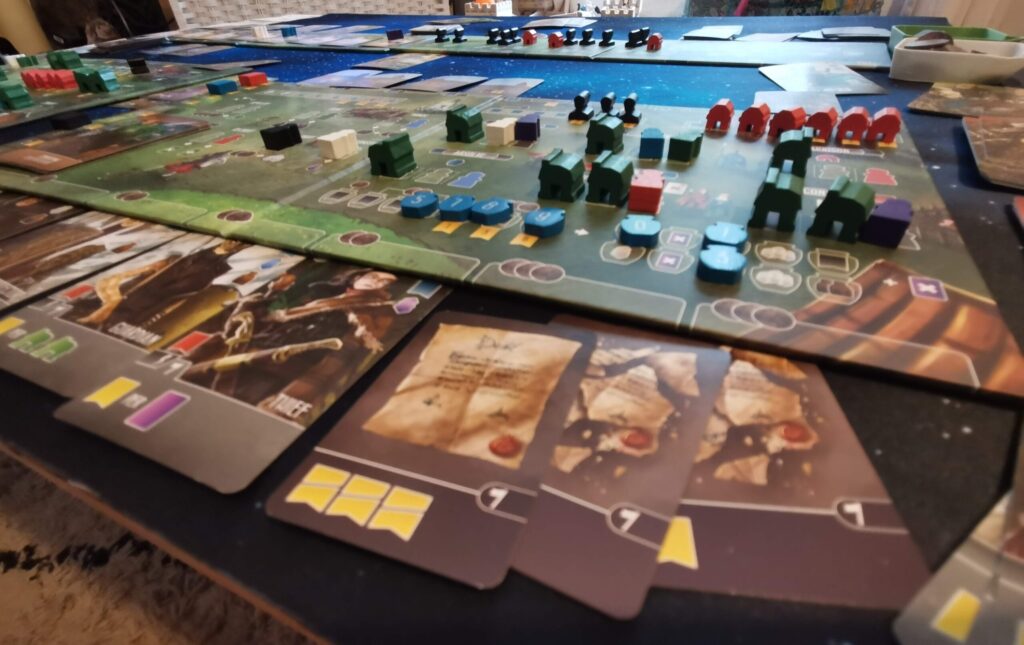
Final Thoughts
I really enjoy heavier games, so I love this, but if you normally play something lighter I’d recommend watching some playthroughs, or downloading the rulebook to get some idea of what’s going on. Better still is a teaching lesson from someone who knows the game. If you’re willing to take a game or two to learn though, it’s a wonderful game. The solo mode is very clever and works really well. The AI opponent has a different board and a deck of cards to determine its moves, which gets added to as the game progresses. I love how many options you have at any turn, there’s almost always some way to get the workers or resources you need, you just need to work out the best way to get them, and hope that someone else isn’t trying to do the same.
If you like worker placement, get this game. It’s as simple as that. It’s relatively cheap at the moment compared to a lot of newer releases, and there’s so much game in the box. Paladins of the West Kingdom is my favourite game this year.
Adam is a board game critic with over 15 years of experience in the hobby. A semi-regular contributor to Tabletop Gaming Magazine and other publications, he specialises in heavyweight Euro games, indie card games and transparency in board game media.

